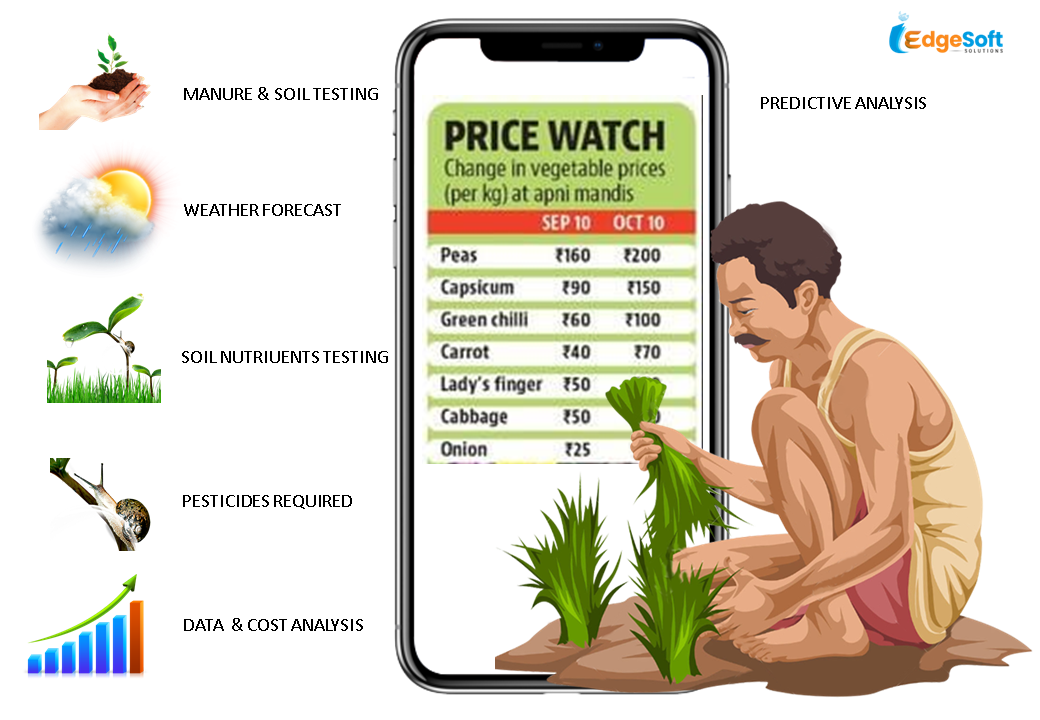
The agriculture industry stands at the forefront of a technological revolution, with mobile devices playing a pivotal role in transforming traditional farming practices. The integration of mobile technology has not only reshaped the sector but has also paved the way for more efficient and sustainable agricultural methods. Let's delve into how data and statistics underscore the profound impact of mobile technology on agriculture.
1. Real-Time Data Collection and Analysis
The adoption of mobile applications tailored for agriculture has surged significantly. Reports from Grand View Research project the global smart agriculture market to reach $22.7 billion by 2025, driven by the growing reliance on mobile-based data collection and analysis. Real-time access to essential data such as crop conditions, weather forecasts, and soil health has revolutionized decision-making processes, leading to optimized farming practices.
2. Precision Farming and Resource Management
The application of mobile technology in precision farming has yielded substantial benefits. Studies published in the Journal of Advanced Research suggest that precision agriculture technologies can enhance yields by up to 20% while reducing input usage by 10%-20%. The integration of mobile devices with GPS capabilities empowers farmers to map fields accurately, monitor crop growth, and apply resources with precision, minimizing waste and maximizing efficiency.
3. Remote Monitoring and IoT Adoption
The rise of IoT devices and mobile-connected sensors has revolutionized farming practices. Market reports predict the global agricultural IoT market to reach $20.9 billion by 2026. This technology facilitates remote monitoring and control of farm operations like irrigation systems and greenhouse conditions, enabling farmers to optimize resource utilization and manage risks effectively.
4. Financial Inclusion and Mobile Payments
Mobile technology has significantly enhanced financial inclusion in agriculture. The World Bank's Global Findex Database indicates a doubling of adults with mobile money accounts, reaching 1.2 billion in 2019. Mobile banking services have empowered farmers in rural areas with access to formal financial systems and digital payment solutions, reducing cash reliance and enhancing financial security.
5. Crop and Disease Diagnosis with AI
AI-powered mobile applications for crop diagnosis have shown promising results. Research published in Plant Methods showcases AI's ability to diagnose crop diseases with over 95% accuracy. Early detection facilitated by AI-equipped mobile apps aids farmers in timely interventions, reducing crop losses and ensuring food security.
6. Marketplace Platforms and Elimination of Middlemen
Mobile-based marketplace platforms have disrupted traditional supply chains. Reports from the UNCTAD reveal that these platforms facilitate direct connections between farmers and buyers, reducing intermediary involvement by up to 75%. This fosters fair pricing for farmers and enhances transparency in agricultural transactions.
The data-driven transformation brought about by mobile technology in agriculture is reshaping the sector's landscape. The statistics and insights presented above underscore the immense potential of mobile devices in empowering farmers, enhancing productivity, and promoting sustainable agricultural practices. As the industry continues to embrace technological advancements, the future of global agriculture promises to be more efficient, resilient, and technologically advanced.
If you seek to leverage the power of mobile technology for your business growth, contact iEdgeSoft Solutions today for tailored solutions designed to propel your success.
















